
Code: 02099462
Use of Own Reason or Self-Imposed Immaturity in Dystopian Literature?
by Britta Küthen
Seminar paper from the year 2012 in the subject English - Literature, Works, grade: 1,7, University of Duisburg-Essen (Anglophone Studien), course: Dystopian Literature, language: English, abstract: At least since Aldous Huxley s ... more
- Language:
 English
English - Binding: Paperback
- Number of pages: 24
Publisher: Grin Publishing, 2013
- More about this

36.33 €
RRP: 37.08 €
You save 0.75 €

In stock at our supplier
Shipping in 15 - 20 days
You might also like
-

Complete Key for Schools Student's Book without Answers with Online Practice
26.67 € -

Robinson Crusoe
3.31 € -28 % -

Poklady pod sněhem
9.45 € -8 % -
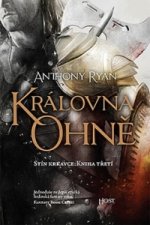
Královna ohně
13.68 € -19 % -
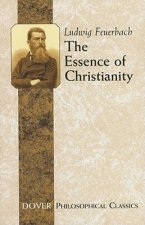
Essence of Christianity
11.57 € -11 % -

Survival Handbook
14.29 € -22 % -
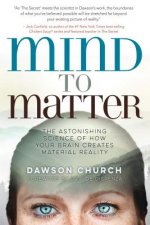
Mind to Matter
26.37 € -4 %
Give this book as a present today
- Order book and choose Gift Order.
- We will send you book gift voucher at once. You can give it out to anyone.
- Book will be send to donee, nothing more to care about.
More about Use of Own Reason or Self-Imposed Immaturity in Dystopian Literature?
You get 91 loyalty points
 Book synopsis
Book synopsis
Seminar paper from the year 2012 in the subject English - Literature, Works, grade: 1,7, University of Duisburg-Essen (Anglophone Studien), course: Dystopian Literature, language: English, abstract: At least since Aldous Huxley s dystopian classic Brave New World, first published in 1932, dystopian literature has been quite popular up to the present. As for example, Suzanne Collins trilogy Hunger Games is one of the most influential as well as famous current dystopian novels. According to the Oxford Dictionary, dystopia as a literary term is defined as [an] imagined place or state in which everything is unpleasant or bad, typically a totalitarian or environmentally degraded one. [ ] (Oxford Dictionaries 2012). The term paper at hand focusses on the individual living in totalitarian societies. Therefore, a closer look will be taken at the two female protagonists of Margaret Atwood s The Handmaid s Tale and Kazuo Ishiguro s Never Let Me Go, Offred and Kathy. Their characters will be analyzed with special regard to their moral action as well as their use of reason living within a totalitarian system. The examination of the two characters is based on fundamental aspects of Kantian philosophy concerning the understanding of enlightenment, freedom and the use of reason.Since totalitarian regimes, as presented in dystopian literature, usually are authoritarian and oppressive, it is interesting to consider if such a society leaves room for making use of one s own reason (cf. Oxford Dictionaries 2012). Therefore the initial question of this term paper is: Do the two protagonists of The Handmaid s Tale and Never Let Me Go make use of their own reason in terms of Kant s definition of pure practical reason, freedom and enlightenment, or do they prefer to live under a self-imposed nonage? To answer this question, the term paper is divided into four chapters. Following this introduction, the second chapter concentrates on Immanuel Kant s philosophical theories. After a short expository passage, Immanuel Kant s basic hypotheses on moral concepts as well as his image of man will be explained, serving as a basis for the examination of Offred s and Kathy H s characters. In the first part of chapter two, the most important aspects of the Categorical Imperative will be illustrated. In the second part of chapter two, Kant s concepts of pure practical reason, freedom and Enlightenment will shortly be introduced as well as explained.In the third chapter, the two female protagonists characters will be analyzed by focussing on Kantian philosophy as exposed before. First of all, Offred from The Handmaid s Tale and then Kathy H. from Never Let
 Book details
Book details
Book category Books in English Language Language: reference & general
36.33 €
- Full title: Use of Own Reason or Self-Imposed Immaturity in Dystopian Literature?
- Subtitle: An Examination of the Female Protagonists of "The Handmaid's Tale" and "Never Let Me Go" on the background of Kantian Theories
- Author: Britta Küthen
- Language:
 English
English - Binding: Paperback
- Number of pages: 24
- EAN: 9783656494768
- ISBN: 3656494762
- ID: 02099462
- Publisher: Grin Publishing
- Weight: 48 g
- Dimensions: 147 × 210 × 9 mm
- Date of publishing: 11. September 2013
Trending among others
-

Save the Cat! Writes a Novel
13.38 € -24 % -

Japanese Stories for Language Learners
15.70 € -17 % -
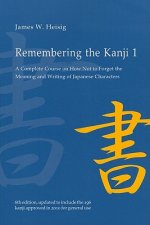
Remembering the Kanji 1
43.78 € -
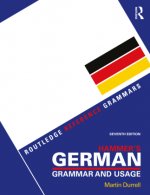
Hammer's German Grammar and Usage
50.53 € -

Egy Szo Mint Szaz: Magyar-Angol Tematikus Szokincstar / Hungarian-English Vocabulary by Topic
46.10 € -
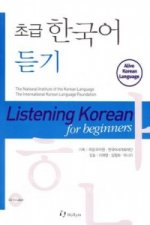
Listening Korean For Beginners (with Cd)
29.19 € -4 % -
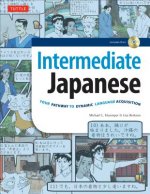
Intermediate Japanese Textbook
24.86 € -18 % -
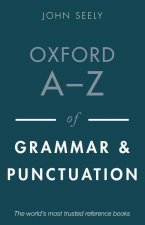
Oxford A-Z of Grammar and Punctuation
9.76 € -28 % -
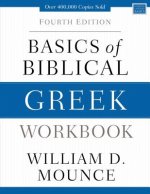
Basics of Biblical Greek Workbook
18.21 € -28 % -
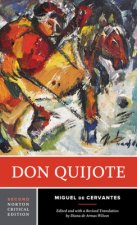
Don Quijote
23.55 € -1 % -
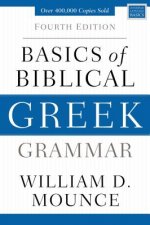
Basics of Biblical Greek Grammar
42.68 € -28 % -

German Grammar in Context
64.42 € -

Korean Phrase Book For Travelers
12.88 € -15 % -

MI6 Spy Skills for Civilians
12.37 € -27 % -
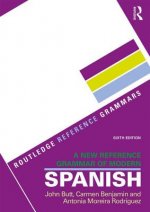
New Reference Grammar of Modern Spanish
48.42 € -11 % -
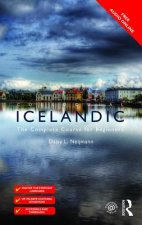
Colloquial Icelandic
82.24 € -

Merriam-Webster s Advanced Learner's English Dictionary
31.30 € -3 % -
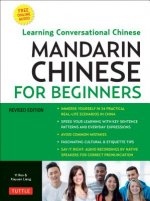
Mandarin Chinese for Beginners
15.70 € -21 % -
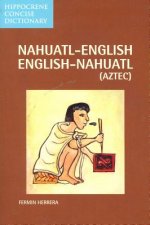
Nahuatl-English/English-Nahuatl Concise Dictionary
11.97 € -25 % -

Salamaat! Learning Arabic with Ease
25.56 € -16 % -

Basics of Biblical Hebrew Grammar
45.39 € -24 % -
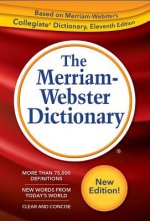
Merriam-Webster Dictionary
12.47 € -26 % -
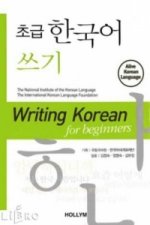
Writing Korean For Beginners
32.81 € -4 % -

English Vocabulary Builder Workbook (200 Lessons)
18.82 € -2 % -

Routledge Introductory Course in Modern Hebrew
56.67 € -

Testuj Swoj Polski - Slownictwo 1 Plus
14.59 € -

Easy Learning English Idioms
8.95 € -22 % -

Speaking Korean For Beginners (with Cd)
22.84 € -14 % -

V Puti
48.42 € -13 % -

Pashto Grammar
17.10 € -
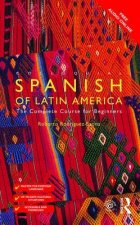
Colloquial Spanish of Latin America
65.43 € -6 % -
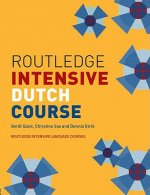
Routledge Intensive Dutch Course
69.56 € -

Bildwörterbuch Deutsch - Ungarisch / Képes szótár német - magyar
18.62 € -
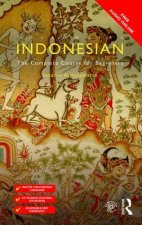
Colloquial Indonesian
71.57 € -10 % -

Einführung in die deutsche Sprachgeschichte
27.07 € -
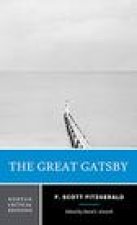
Great Gatsby
15.80 € -

How Languages Work
67.85 € -

Hallo, Itt Magyarorszag! (Hungarian for Foreigners). by Direct Method
39.76 € -11 % -

VITAL VOICES 100 WOMEN USING THEIR POWER
71.27 € -

Colloquial Breton
111.94 € -
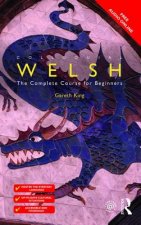
Colloquial Welsh
61.81 € -9 % -
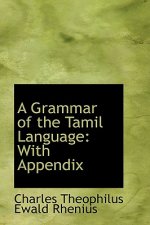
Grammar of the Tamil Language with Appendix
23.15 € -22 % -

Anthology of Arabic Literature, Culture, and Thought from Pre-Islamic Times to the Present
66.24 € -17 % -

Czech
46.80 € -9 % -

Gnostic Devil in Bulgakov's 'Master and Margerita'
14.59 € -9 % -

Frequency Dictionary of German
46.60 € -4 % -
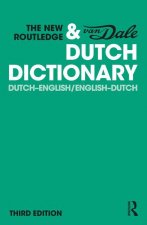
New Routledge & Van Dale Dutch Dictionary
69.15 € -4 % -
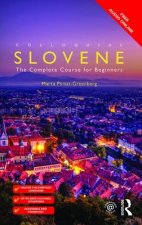
Colloquial Slovene
90.30 € -13 % -

Merriam-Webster's Intermediate Visual Dictionary
16.90 € -18 %
Collection points Bratislava a 2642 dalších
Copyright ©2008-24 najlacnejsie-knihy.sk All rights reservedPrivacyCookies


 15549 collection points
15549 collection points Delivery 2.99 €
Delivery 2.99 € 02/210 210 99 (8-15.30h)
02/210 210 99 (8-15.30h)